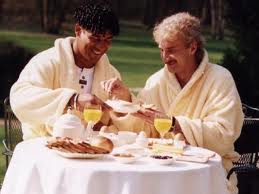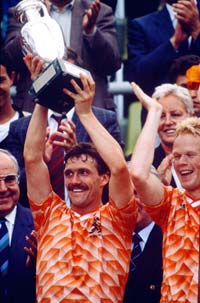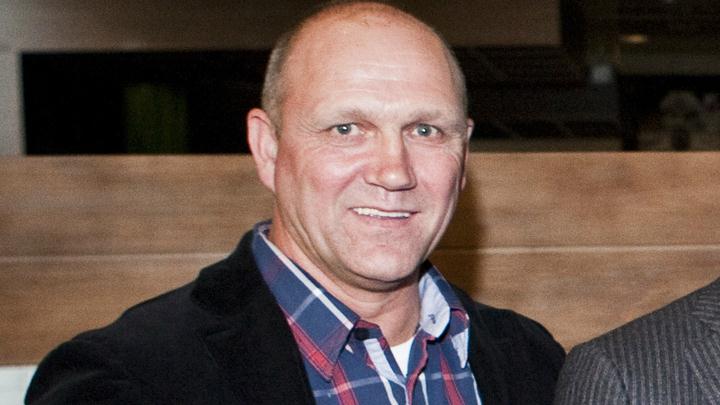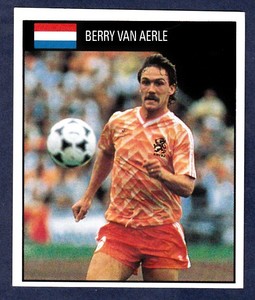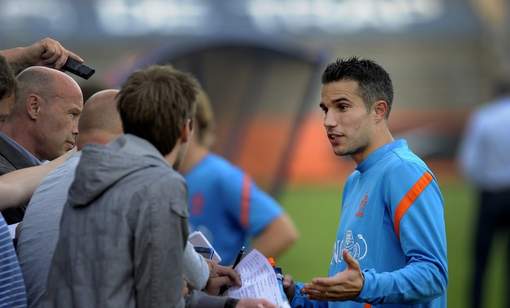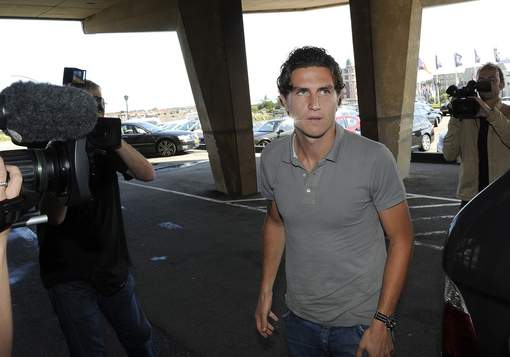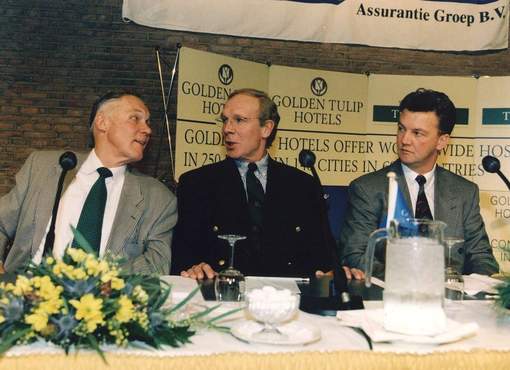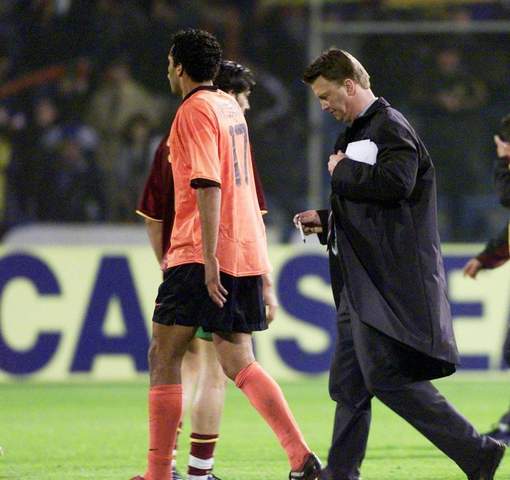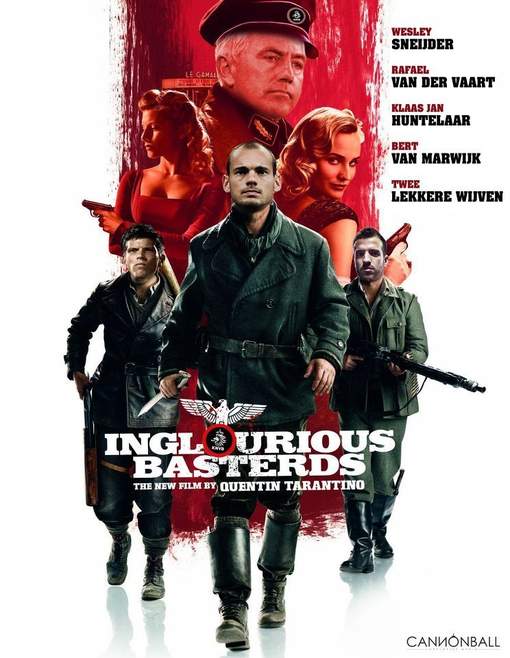A question that always intrigues in pubs or on the beach or when watching a game of football. “Who was/is the greatest?”. It depends on your criteria I suppose, but most people would agree that if one takes into a account the impact a player had on the tactical side of the game, both during and after his active career, none other than JC will top the list.
Messi might have more tricks and speed, Pele might have won more trophies and Maradona had the bravado, maestro Cruyff had it all: speed, trickery, goals, trophies, leadership, and above all: brains.
He understands the game like no one else. “Football is a simple game, but it is very difficult to play it simple”. His total football style, developed with Rinus Michels and perfect by JC as a coach was adopted as Ajax’ housestyle and further developed by the likes of Co Adriaanse and Louis van Gaal.
Cruyff and Van Gaal have further incluenced many great clubs, such as Barcelona, Feyenoord. Bayern Munich and many great coaches such as Rijkaard, Guardiola, Brendan Rogers, Mourinho and Michael Laudrup.
Asked about the impact of football, Cruyff is adamant: “Football is an international language. You can put a guy from Senegal, the US, Russia, Finland, New Zealand, Holland and Brazil together in a room and bring up music, or science or politics and they will have difficulty getting somewhere. They need communications to determine their roles or their aims. Give them two goals, a field and a ball and they can play football together without speaking.” He believes football is the great equaliser. “In athletics, if you can spring very fast, you can be the hero. If you can’t, you basically are out. In basketball, being tall really helps. Being small will make it very hard. In football, you can always get better. You can always have a role. And if you are not that good at it, you can become a goalie….” Or a referee, if you really suck.
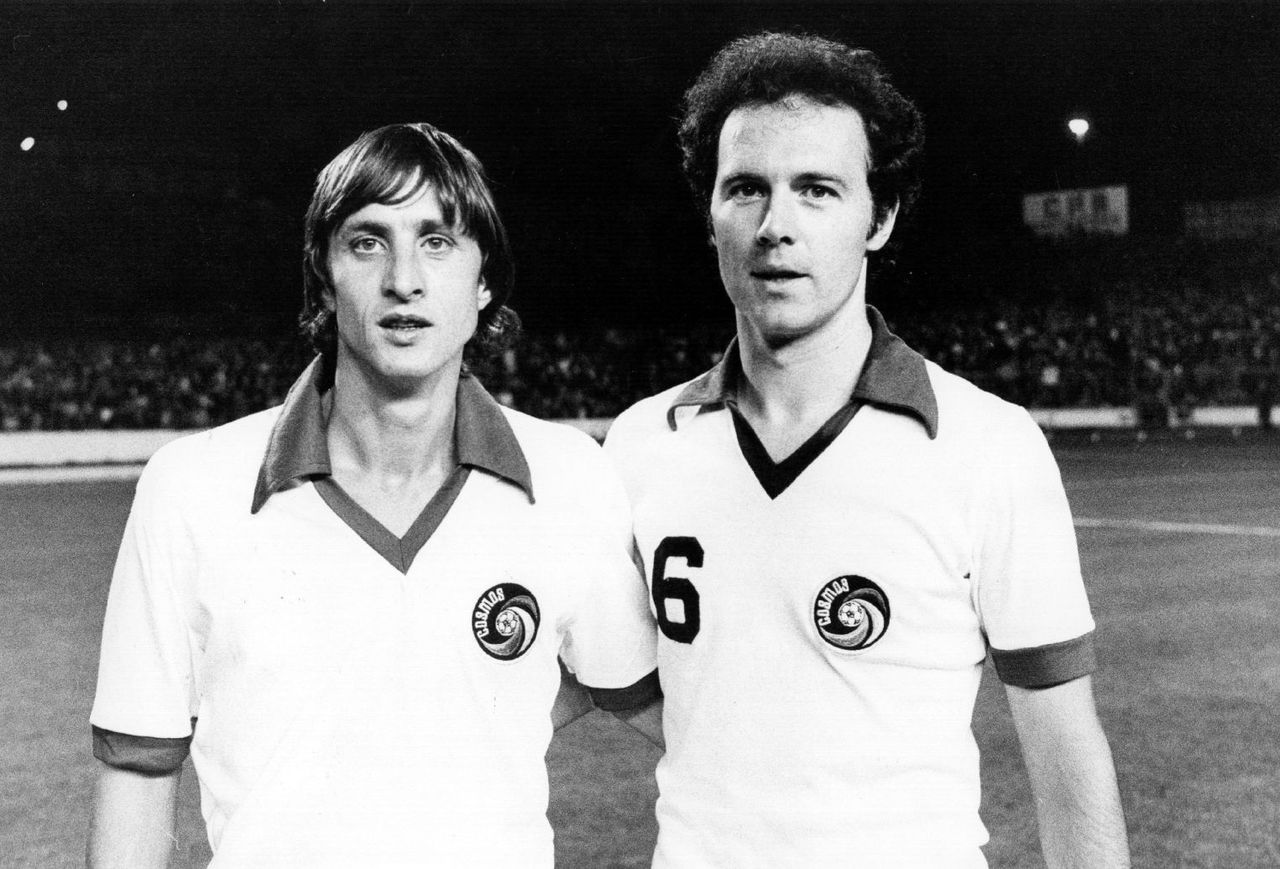
In terms of tactics, Cruyff has always been radically simple. “In order to score goals you need the ball. So, it’s key to have players who can repossess the ball. To score a goal, it helps if you are close to the box of the opponent. So if you put pressure on their defence as soon as possible, you can repossess the ball and immediately be dangerous. This also means the forwards will do the first defending. They always complain at first. Until they realise everyone needs to work less hard due to this pressure game. Otherwise you keep on going from box to box. Absorbing pressure, sitting deep until you have the ball and you need to bridge 50 meters or more.”
When Oranje played Spain in the WC finals 2010, JC gave his support to Spain. Because they played more JC-style football. “I never intended to say I supported Spain over Holland. It was not a nationalistic thing for me. People criticised me, but I don’t view football as a nationalistic issue. It’s a game. Two teams. The one who plays the style I like is the the team I support. Normally, it is Holland. But we did not play Total Football in South Africa and I understand totally why. Bert van Marwijk didn’t have the quality in his squad to do so. As a coach, you work with what you have. In particular with national teams.”
He goes on: “In baseball, players are mentioned by their role. He is a pitcher or catcher or third baseman. Here it is a bit more vague: a defender. A midfielder. But Beckham is totally different from Nigel de Jong. Both midfielders. People compare Messi with C Ronaldo. Stupid. They are very different. Both top class, but different.”
He sees the current Oranje as a good step back to the Total Football of the 1970s. “A lot of people complain about Oranje. But it is not easy for a small country to have top notch players for every tournament. You need to phase a generation out and phase a new one in. Our youngsters are quite talented. And we have some top notch older players. I like what Louis van Gaal does with the newbies in the team. But tactically, he is not capable of executing the game like he would want it. The problem with Oranje today is the build up. Look at Barca. The ball goes really quick from defence to midfield. Same with Bayern. This is where you want the ball to be. Not in your defence. Our midfielders come to the ball with their back to the opponent’s goal. That is hard for them. Opening up is a risk. So there are some crucial things that need to be changed. A quicker build up pass, with good quality and better positioning by the midfield. This will allow the midfield to utlise the runs by the forwards and put pressure on the opponent. The problem against France was clear. After Strootman left the pitch, our midfield was outmuscled.”
And here is the big issue Oranje faces. We have big names in the front line, with Robben and Robin. We have one big name left in midfield (Nigel de Jong) although Wes and Raf still have the reputation. But we lack the big names in the back.
Cruyff remembers the 1974 prep for the World Cup. “We were shabby in the run up to the World Cup. Most people in Holland thought we best stay home. We missed top defenders, all central defenders, like Aad Mansveld, Epi Drost, Barry Hulshoff, Rinus Israel, Theo Laseroms… Michels was going mad and only two weeks before the start, he picked the team. Jongbloed came in as sweeper/goalie. Rijsbergen was a young rookie at Feyenoord, but tough as nails. And Arie Haan was put in the libero spot. The rest is history.”
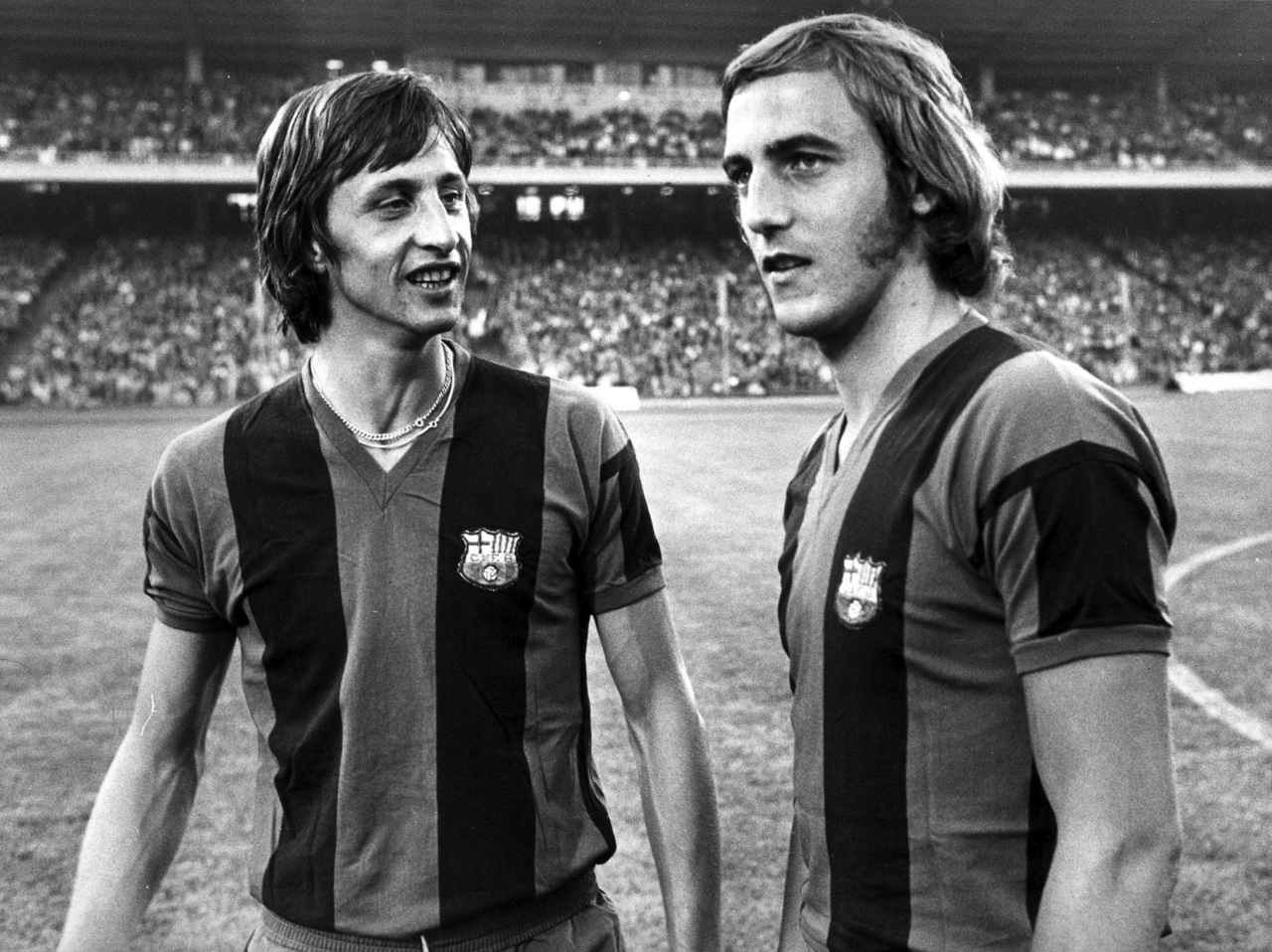
In 1988, Rinus Michels had similar issues. Rijkaard played defensive midfielder for AC Milan – and good too – but was instructed to support the defence (and did this good too). The former Ajax man was / is the ultimate modern defender. Tough, tall, good header, great passer, cool-calm-collected and tactically astute. The Rijkaard “type” was born.
Today, we don’t seem to be able to find that type of player. Who can play central defender when needed and midfielder when in possession. And we tried to find him. Marco van Basten and Bert van Marwijk tried out different lads, from Evander Sno to Hedwiges Maduro to Orlando Engelaar. For different reasons, it didn’t work out. Strootman could have been a contender for the role but we won’t know for another 9 months.
Martins Indi has the potential, but is still to inconsistent. Terence Kolongo is a top talent but very inexperienced, while Kyle Ebecilio has promise too, but the ex Feyenoord / ex Arsenal man also has not a lot of big games under his belt.
As Cruyff said: the material you have will determine what you can do. There are many question marks still in the squad. How is Lens coping in Ukraine? Which talent on the wings will show longevity? How will Wes and Raf stay strong? And which central defenders are able to impress Van Gaal for a series of games?
Earlier on, I said that Vlaar is a solid defender for a team playing relegation football. A classic, English defender. Tall, strong, slow and robust. Looking at the current Oranje squad, maybe it is ok to have players used to relegation football.
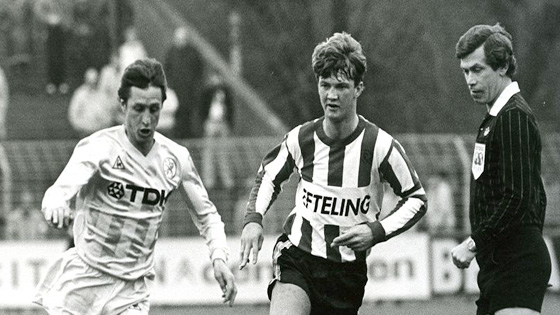

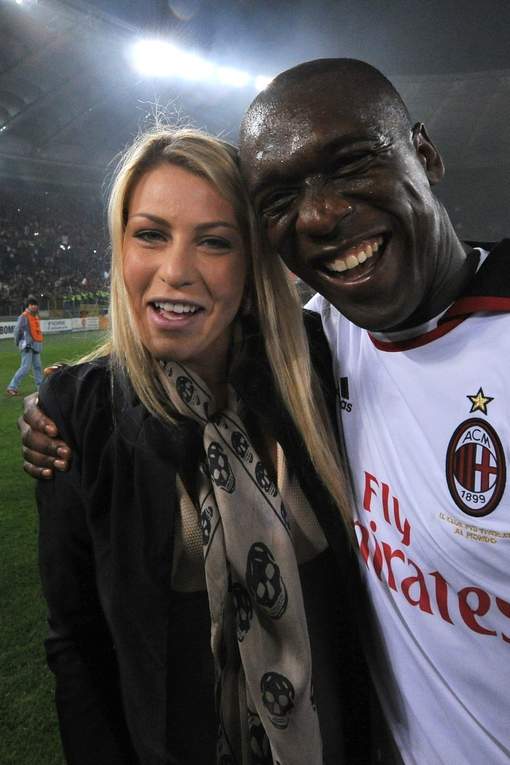
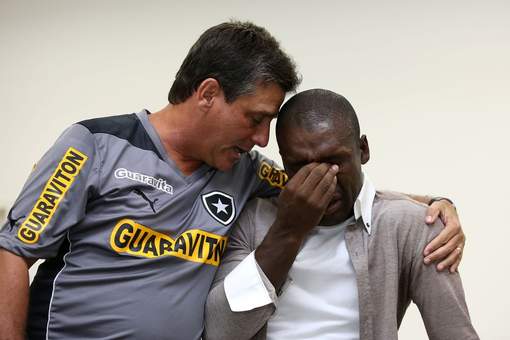
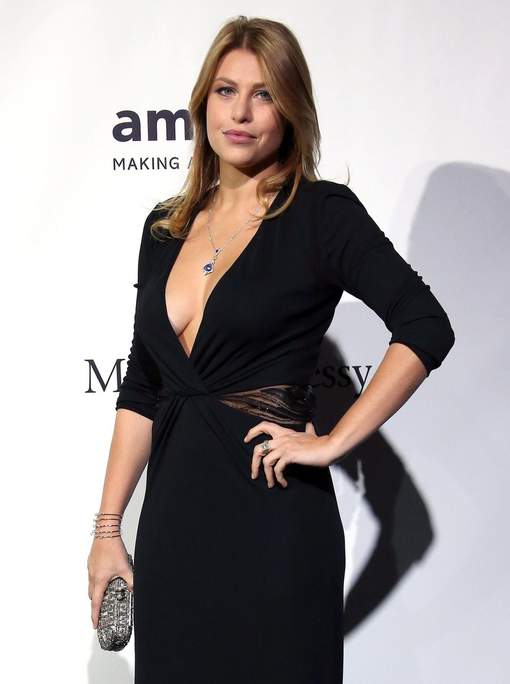
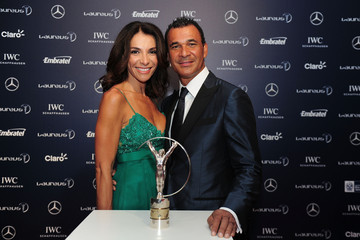
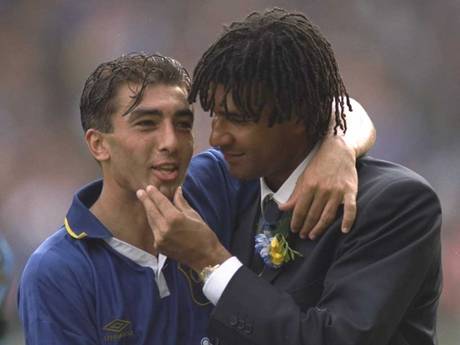
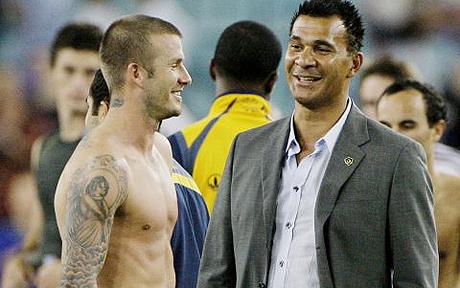
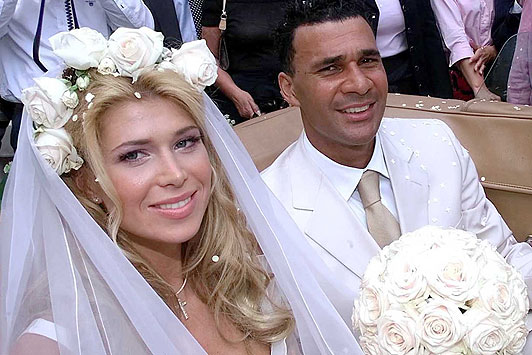
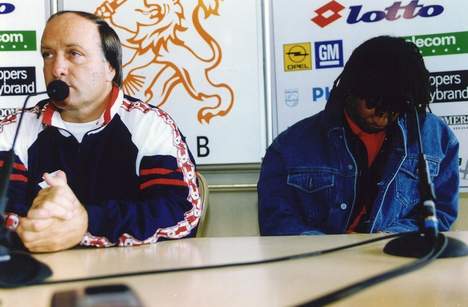
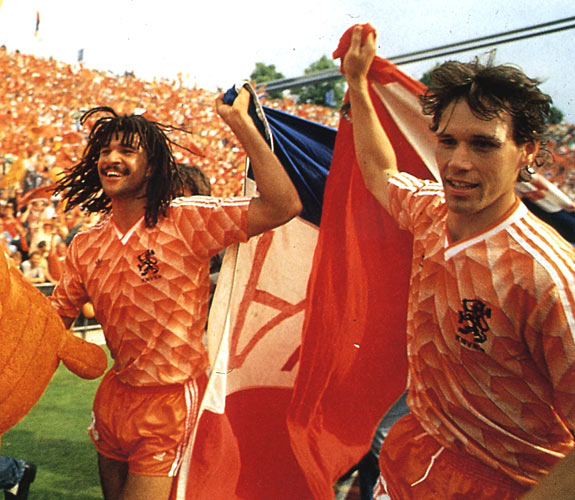
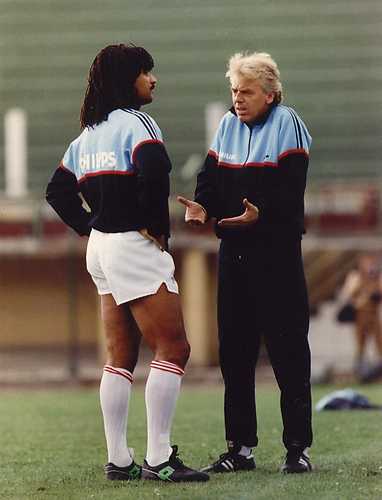 Body language 101
Body language 101